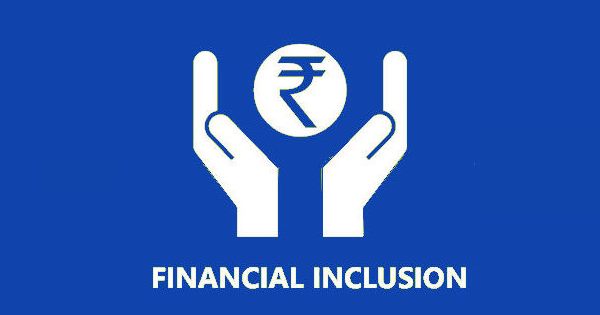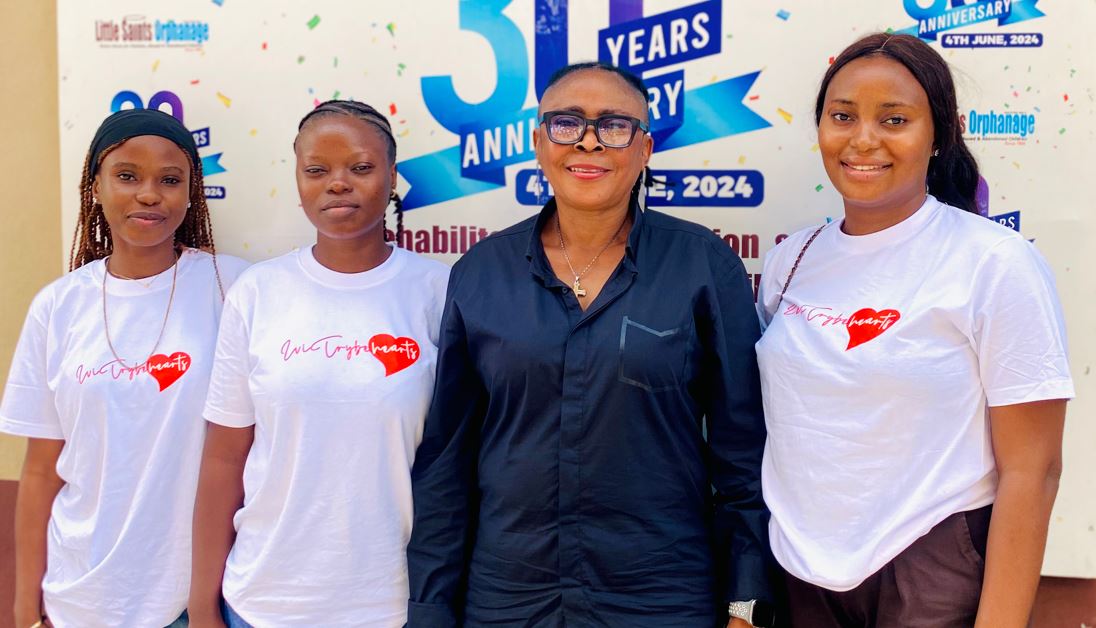News
‘Digitization of Social Protection, Humanitarian Payments Enhancing Financial Inclusion in Nigeria’

A joint report from FSD Africa, Enhancing Financial Innovation and Access (EFInA) and the GSMA, and conducted by Strategic Impact Advisors (SIA), has revealed that a gradual transition from physical cash transfers to digital would improve the recipients’ usage.

The report noted that although this transition will not be immediately possible everywhere due to limited network connectivity, low mobile phone ownership levels, and low literacy rates among other barriers, it outlined different opportunities for social protection and humanitarian actors, and the private sector, to work together to support increased access to digital payments for poor and vulnerable recipients of assistance.
The Central Bank of Nigeria (CBN) has been championing the government’s efforts by designing policies that could enhance the transition from physical cash transfers to digital. The CBN is committed to achieving their 95% financial inclusion target set for 2024.
The report, “Opportunities and Barriers to Digitising Social Protection and Humanitarian Payments in Nigeria,” highlighted the opportunities within digitisation of cash transfers and presented a roadmap for its actualisation.
The study reinforces the need to create an ecosystem in which recipients could eventually access cash transfers on a permanent digital wallet through their mobile phones, leading invariably to multi-choice usage, which they can then use to transact to meet all of their needs and help to reduce reliance on physical cash.
Also, the report offers recommendations to improve Nigeria’s capacity to deliver digital payments to the poor.
It points out the need for humanitarian and social protection organizations to work in partnership with the Government and financial service providers to support an enabling environment to reach last mile recipients, the importance of coordination to promote a more cohesive use of cash transfers wherever appropriate, and efforts to better inform the development and extension of relevant services by payment providers wherever feasible.
The report noted that there are pockets of digital transaction-ready recipients who could support the development of digital payment ecosystems and help to advance financial inclusion. Although digital payments will not be enough to bridge the financial inclusion gap in Nigeria, access to digital payments is an integral component and this report charts out practical next steps.
Commenting on the report, Director – Digital Economy at FSD Africa, Juliet Munro said: “Cash transfers are a vital source of income for many underserved households.
“We are delighted about the ongoing conversations with our partners on the existing possibilities to digitise cash payments. Once the systems are in place, the targeted households will be able to access the much-needed aid faster and more efficiently.”
CEO at EFInA, Ashley Immanuel said: “Fintech Innovation is a key driver of financial inclusion and very useful in providing access to financial services, especially for the underserved. Digitising cash transfers will help reduce the burden for cash disbursement and support recipients’ application of healthy financial habits like saving.”
On his part, Development Director at FCDO Nigeria, Chris Pycroft, said: “Really encouraged to see this report highlight principled and important opportunities for development actors to support increased access to payments among the poor, lay the foundations for financial inclusion, and harness Nigeria’s growing Fintech scene.”
News
OAU Taps Aderounmu, Tech Advocate as DVC Academics

Obafemi Awolowo University (OAU), Ile-Ife, has appointed Professor Adesola Aderounmu, renowned computer scientist and technology advocate, as its new Deputy Vice-Chancellor (Academics).

Professor Adesola Aderounmu
The decision, made by the university’s Senate, marks a strategic step towards aligning OAU’s academic vision with technological innovation and global best practices.
A distinguished scholar and leader in Computer Science and Engineering, Professor Aderounmu brings decades of experience to this pivotal role.
He has served as the Centre Lead for the African Centre of Excellence in Software Engineering and the Obafemi Awolowo University Knowledge Park (OAK-Park), where he has driven initiatives that advance technological innovation and academic excellence.
His leadership journey includes serving as Dean of the Faculty of Technology and Head of the Department of Computer Science, as well as President of the Nigeria Computer Society from 2015 to 2019. Under his stewardship, the Africa Centre of Excellence in ICT (OAK-Park) was established and has flourished, positioning OAU as a hub for digital transformation in Nigeria and across Africa.
“This is an opportunity to shape the future of education at OAU,” Professor Aderounmu stated. “I am committed to fostering an environment where ideas thrive.”
Professor Aderounmu’s appointment as DVC Academics carries significant implications for the information technology profession and industry in Nigeria and Africa.
His leadership is expected to further bridge the gap between academia and industry, aligning curriculum with emerging technological trends, and fostering research that directly addresses the needs of Nigeria’s evolving digital economy.
His commitment to developing high-level ICT talent will contribute to strengthening the nation’s capacity in critical areas such as artificial intelligence, cybersecurity, software engineering, and digital entrepreneurship.
As Nigeria and Africa continue to embrace digital transformation, this appointment signals a continued push for collaboration between universities and the technology industry, ensuring that graduates are equipped with globally relevant skills while advancing innovative research that supports the tech ecosystem.
This appointment recognises Professor Aderounmu’s unwavering commitment to research, excellence in education, and visionary leadership, and marks a significant milestone in the university’s ongoing mission to deliver impactful education and innovation for national and continental development.
News
IviTrybe Hearts Takes Kindness Drive to Little Saints Home

In a heartwarming demonstration of corporate social responsibility and community impact, IviTrybe Hearts, a key initiative driven by members of IviTrybe – a vibrant group of budding marketing communications specialists – visited the Little Saints Orphanage, Akowonjo branch.

The visit, part of IviTrybe’s ongoing commitment to societal betterment, was significantly supported by Pladis Foods Nigeria, which generously donated gift items and products.
IviTrybe is a social responsibility initiative of IVI PR, a dynamic public relations agency dedicated to not only elevating brands but also fostering positive societal impact. This initiative provides focused practical training covering brand strategy and public relations, directly addressing the critical issue of insufficiently skilled manpower within Nigeria’s Public Relations industry. Through the #IviTrybeHearts program, the group channels its growing expertise into meaningful community engagement.
During the visit, the IviTrybe Hearts team dedicated the day to creating a memorable and impactful experience for the children. Activities included extensive bonding and interaction sessions, where members engaged in games and companionship, fostering an atmosphere of joy and connection. Essential items were donated to support the orphanage’s daily needs, and motivational talks were delivered, inspiring the children with words of encouragement and hope for their futures.
Busari Toheeb Dolapo, IviTrybe Coordinator and spokesperson for the project, underscored the essence of the visit, stating, “For whom much is given, much is expected. We have been empowered through knowledge and mentorship at IVI PR, and it’s only right that we channel that privilege into making a difference. The smiles on the children’s faces today reminded us why giving back is non-negotiable.”
The management of Little Saints Orphanage expressed profound gratitude for the support and the tangible impact of the donations, emphasising how such gestures significantly improve the lives and spirits of the children under their care.
Through impactful initiatives like IviTrybe Hearts, IviTrybe continues to exemplify how youth-led action, empowered by practical training and a strong sense of responsibility, can effectively shape communities and enrich lives for the better.
News
INTERPOL Report Shows Cybercrime is West, East African Most Dominant Security Concern

Cybercrime has emerged as a dominant security concern across Africa, with more than 30 percent of all reported crimes in Western and Eastern regions linked to cyber activity, according to the newly released 2025 Africa Cyberthreat Assessment Report by INTERPOL.

The report, based on data from African member states and private sector partners, reveals that two-thirds of surveyed countries describe cybercrime as constituting a medium to high share of total criminal cases.
This highlights how cyber-enabled criminal activity is evolving rapidly across the continent. The report identified alarming spikes in scam attempts, with some countries witnessing a 3,000 percent increase in suspected scam notifications in the past year.
Neal Jetton, INTERPOL’s Cyber Crime Director, warned that the threat landscape is evolving faster than enforcement responses.
“This fourth edition of the INTERPOL African Cyber Threat Assessment provides a vital snapshot of the current situation, informed by operational intelligence, extensive law enforcement engagement, and strategic private-sector collaboration.
“It paints a clear picture of a threat landscape in flux, with emerging dangers like AI-driven fraud that demand urgent attention. No single agency or country can face these challenges alone,” Jetton stated.
In the past year, suspected scam notifications rose by up to 3,000 per cent in some African countries, according to data from Kaspersky, one of several private sector partners that work with INTERPOL’s cybercrime directorate
Online scams, particularly through phishing, are the most frequently reported cybercrimes across the continent. Ransomware attacks and Business Email Compromise (BEC) incidents are also increasing, particularly in Nigeria, Kenya, South Africa, and Egypt.
“Ransomware detections in Africa also rose in 2024, with South Africa and Egypt suffering the highest number, at 17,849 and 12,281 detections respectively, according to data from Trend Micro, followed by other highly digitised economies such as Nigeria (3,459) and Kenya (3,030),” it stated.
Incidents included attacks on critical infrastructure, such as a breach at Kenya’s Urban Roads Authority (KURA), and on government databases, such as hacks of Nigeria’s National Bureau of Statistics (NBS), the report stated.

 General News3 days ago
General News3 days agoNigeria’s BNPL Market is Projected to Value @ $2.6B by 2030

 Telecom3 days ago
Telecom3 days agoFree WiFi Meets Mega Entertainment at the Grand Opening of Solution Fun City

 E-Financial3 days ago
E-Financial3 days agoNIA Puts Industry Written Premium @ N1.5trn in 2024

 Telecom3 days ago
Telecom3 days agoInstagram Safety Tools Every Parent Should Know About

 Telecom3 days ago
Telecom3 days agoV-Malaysia 2025: QNET Strengthens Global Network with Landmark 5-Day Event

 E-Financial3 days ago
E-Financial3 days agoUN and Sterling One Foundation Lead Coalition Ahead of ASIS 2025

 News3 days ago
News3 days agoINTERPOL Report Shows Cybercrime is West, East African Most Dominant Security Concern

 E-Financial14 hours ago
E-Financial14 hours agoShareholders Oppose Transfer of Unclaimed Dividend to CBN




























